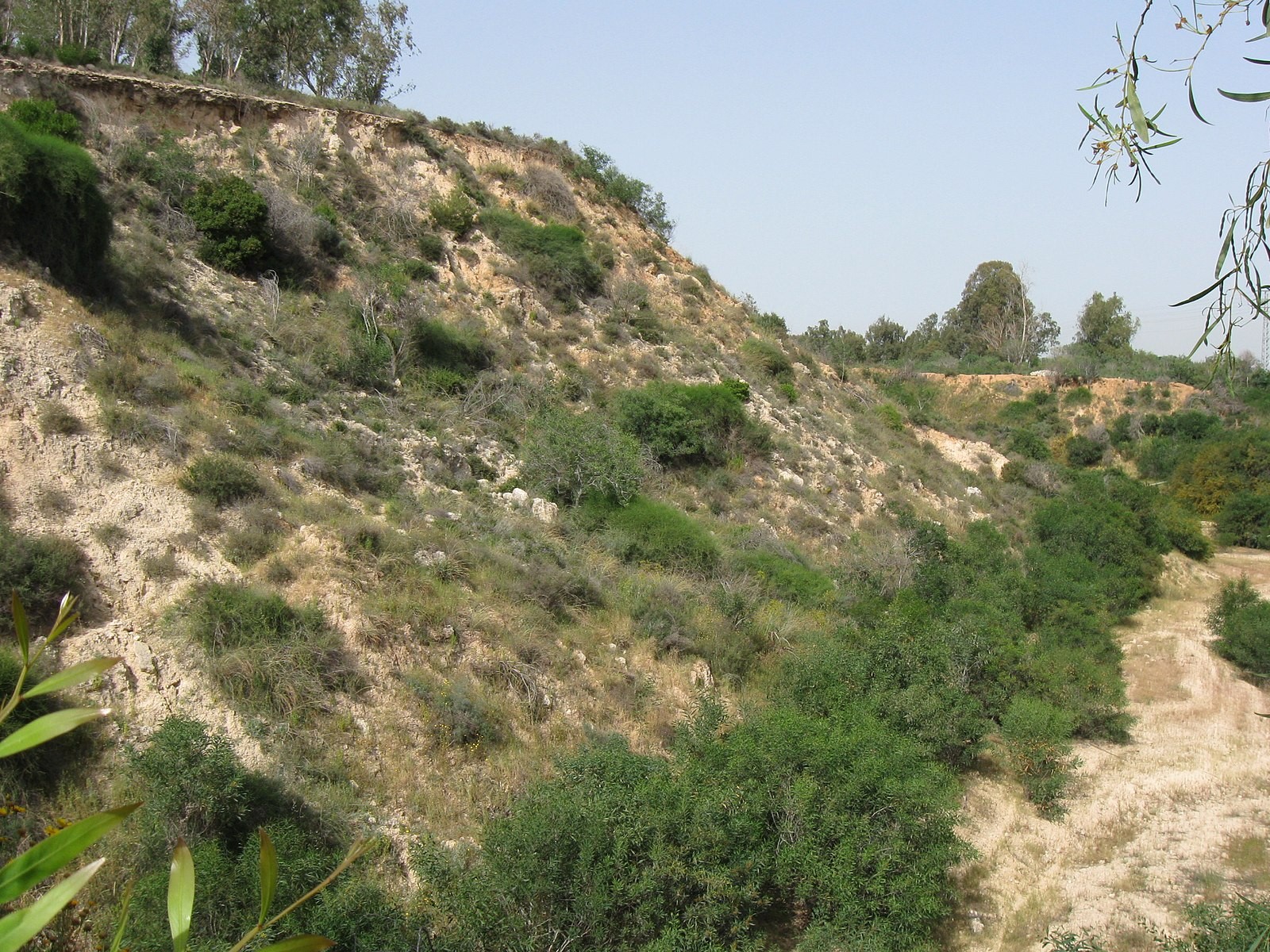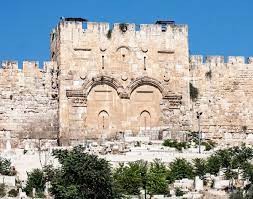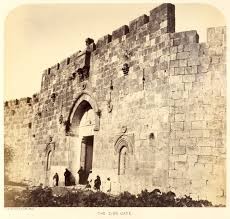Mount Baalah

Mount Baalah is possibly the name of the mountain range, west of Jerusalem, where the town Kirjath-jearim was once located. It is believed that Kirjath-jearim is known as Abu Gosh, which was an Israeli Arab village that was established in 1520 and built over the ruins of the Biblical town of Kirjath-jearim. Abu Gosh is west of Jerusalem, and just north of the Tel Aviv-Jerusalem highway. It is predominately occupied by Muslim Arabs.
Mount Baalah was mentioned as one of the borders of the Tribe of Judah as well as being mentioned as one of the cities of the Tribe of Judah. It is a mountain on the north western boundary of Judah and Dan. “[This] then was the lot of the tribe of the children of Judah by their families; [even] to the border of Edom the wilderness of Zin southward [was] the uttermost part of the south coast. And their south border was from the shore of the salt sea, from the bay that looketh southward: And it went out to the south side to Maalehacrabbim, and passed along to Zin, and ascended up on the south side unto Kadeshbarnea, and passed along to Hezron, and went up to Adar, and fetched a compass to Karkaa: [From thence] it passed toward Azmon, and went out unto the river of Egypt; and the goings out of that coast were at the sea: this shall be your south coast. And the east border [was] the salt sea, [even] unto the end of Jordan. And [their] border in the north quarter [was] from the bay of the sea at the uttermost part of Jordan: And the border went up to Bethhogla, and passed along by the north of Betharabah; and the border went up to the stone of Bohan the son of Reuben: And the border went up toward Debir from the valley of Achor, and so northward, looking toward Gilgal, that [is] before the going up to Adummim, which [is] on the south side of the river: and the border passed toward the waters of Enshemesh, and the goings out thereof were at Enrogel: And the border went up by the valley of the son of Hinnom unto the south side of the Jebusite; the same [is] Jerusalem: and the border went up to the top of the mountain that [lieth] before the valley of Hinnom westward, which [is] at the end of the valley of the giants northward: And the border was drawn from the top of the hill unto the fountain of the water of Nephtoah, and went out to the cities of mount Ephron; and the border was drawn to Baalah, which [is] Kirjathjearim: And the border compassed from Baalah westward unto mount Seir, and passed along unto the side of mount Jearim, which [is] Chesalon, on the north side, and went down to Bethshemesh, and passed on to Timnah: And the border went out unto the side of Ekron northward: and the border was drawn to Shicron, and passed along to mount Baalah, and went out unto Jabneel; and the goings out of the border were at the sea. And the west border [was] to the great sea, and the coast [thereof]. This [is] the coast of the children of Judah round about according to their families.” (Joshua 15: 1-12).
David and all Israel went to Baalah which belongs to Judah, also called Kirjath-jearim, to bring home the Ark of God, which bears the name of the LORD who is enthroned between the cherubim. “And David consulted with the captains of thousands and hundreds, [and] with every leader. And David said unto all the congregation of Israel, If [it seem] good unto you, and [that it be] of the LORD our God, let us send abroad unto our brethren every where, [that are] left in all the land of Israel, and with them [also] to the priests and Levites [which are] in their cities [and] suburbs, that they may gather themselves unto us: And let us bring again the ark of our God to us: for we enquired not at it in the days of Saul. And all the congregation said that they would do so: for the thing was right in the eyes of all the people. So David gathered all Israel together, from Shihor of Egypt even unto the entering of Hemath, to bring the ark of God from Kirjathjearim. And David went up, and all Israel, to Baalah, [that is], to Kirjathjearim, which [belonged] to Judah, to bring up thence the ark of God the LORD, that dwelleth [between] the cherubims, whose name is called [on it]. And they carried the ark of God in a new cart out of the house of Abinadab: and Uzza and Ahio drave the cart. And David and all Israel played before God with all [their] might, and with singing, and with harps, and with psalteries, and with timbrels, and with cymbals, and with trumpets.” (1 Chronicles 13:1-8).
“And when they came unto the threshingfloor of Chidon, Uzza put forth his hand to hold the ark; for the oxen stumbled. And the anger of the LORD was kindled against Uzza, and he smote him, because he put his hand to the ark: and there he died before God. And David was displeased, because the LORD had made a breach upon Uzza: wherefore that place is called Perezuzza to this day. And David was afraid of God that day, saying, How shall I bring the ark of God [home] to me? So David brought not the ark [home] to himself to the city of David, but carried it aside into the house of Obededom the Gittite. And the ark of God remained with the family of Obededom in his house three months. And the LORD blessed the house of Obededom, and all that he had.” (1 Chronicles 13:9-14)
David and the chosen men of Israel returned once again to bring the Ark of God back to Jerusalem. “Again, David gathered together all [the] chosen [men] of Israel, thirty thousand. And David arose, and went with all the people that [were] with him from Baale of Judah, to bring up from thence the ark of God, whose name is called by the name of the LORD of hosts that dwelleth [between] the cherubims. And they set the ark of God upon a new cart, and brought it out of the house of Abinadab that [was] in Gibeah: and Uzzah and Ahio, the sons of Abinadab, drave the new cart. And they brought it out of the house of Abinadab which [was] at Gibeah, accompanying the ark of God: and Ahio went before the ark. And David and all the house of Israel played before the LORD on all manner of [instruments made of] fir wood, even on harps, and on psalteries, and on timbrels, and on cornets, and on cymbals.” (2 Samuel 6:1-2).
“And when they came to Nachon’s threshingfloor, Uzzah put forth [his hand] to the ark of God, and took hold of it; for the oxen shook [it]. And the anger of the LORD was kindled against Uzzah; and God smote him there for [his] error; and there he died by the ark of God. And David was displeased, because the LORD had made a breach upon Uzzah: and he called the name of the place Perezuzzah to this day. And David was afraid of the LORD that day, and said, How shall the ark of the LORD come to me? So David would not remove the ark of the LORD unto him into the city of David: but David carried it aside into the house of Obededom the Gittite. And the ark of the LORD continued in the house of Obededom the Gittite three months: and the LORD blessed Obededom, and all his household.” (2 Samuel 6:6-11).
“And it was told king David, saying, The LORD hath blessed the house of Obededom, and all that [pertaineth] unto him, because of the ark of God. So David went and brought up the ark of God from the house of Obededom into the city of David with gladness. And it was [so], that when they that bare the ark of the LORD had gone six paces, he sacrificed oxen and fatlings. And David danced before the LORD with all [his] might; and David [was] girded with a linen ephod. So David and all the house of Israel brought up the ark of the LORD with shouting, and with the sound of the trumpet. And as the ark of the LORD came into the city of David, Michal Saul’s daughter looked through a window, and saw King David leaping and dancing before the LORD; and she despised him in her heart. And they brought in the ark of the LORD, and set it in his place, in the midst of the tabernacle that David had pitched for it: and David offered burnt offerings and peace offerings before the LORD. And as soon as David had made an end of offering burnt offerings and peace offerings, he blessed the people in the name of the LORD of hosts. And he dealt among all the people, [even] among the whole multitude of Israel, as well to the women as men, to every one a cake of bread, and a good piece [of flesh], and a flagon [of wine]. So all the people departed every one to his house.” (2 Samuel 6:1-19).
Kirjath-jearim is mentioned as a border to the tribe of Benjamin. Kirjath-jearim is also called Kirjath-baal, a city of the children of Judah and the west side.
“And the lot of the tribe of the children of Benjamin came up according to their families: and the coast of their lot came forth between the children of Judah and the children of Joseph. And their border on the north side was from Jordan; and the border went up to the side of Jericho on the north side, and went up through the mountains westward; and the goings out thereof were at the wilderness of Bethaven. And the border went over from thence toward Luz, to the side of Luz, which [is] Bethel, southward; and the border descended to Atarothadar, near the hill that [lieth] on the south side of the nether Bethhoron. And the border was drawn [thence], and compassed the corner of the sea southward, from the hill that [lieth] before Bethhoron southward; and the goings out thereof were at Kirjathbaal, which [is] Kirjathjearim, a city of the children of Judah: this [was] the west quarter. And the south quarter [was] from the end of Kirjathjearim, and the border went out on the west, and went out to the well of waters of Nephtoah: And the border came down to the end of the mountain that [lieth] before the valley of the son of Hinnom, [and] which [is] in the valley of the giants on the north, and descended to the valley of Hinnom, to the side of Jebusi on the south, and descended to Enrogel, And was drawn from the north, and went forth to Enshemesh, and went forth toward Geliloth, which [is] over against the going up of Adummim, and descended to the stone of Bohan the son of Reuben, And passed along toward the side over against Arabah northward, and went down unto Arabah: And the border passed along to the side of Bethhoglah northward: and the outgoings of the border were at the north bay of the salt sea at the south end of Jordan: this [was] the south coast. And Jordan was the border of it on the east side. This [was] the inheritance of the children of Benjamin, by the coasts thereof round about, according to their families.” (Joshua 18:11-20 ).
Abu Ghosh, The Church of Our Lady of the Ark of the Covenant was built in 1924 on a hill above Abu Ghosh. The official title of the fifth century Byzantine church is Notre Dame de l’Arche d’Alliance, which belongs to the French Order of the Sisters of St. Francis. It is believed to locate at the same site of the house of Abinadab where the Ark of the Covenant had rested until King David took it to Jerusalem. “And the men of Kirjathjearim came, and fetched up the ark of the LORD, and brought it into the house of Abinadab in the hill, and sanctified Eleazar his son to keep the ark of the LORD. And it came to pass, while the ark abode in Kirjathjearim, that the time was long; for it was twenty years: and all the house of Israel lamented after the LORD.” (1 Samuel 7:1-2).
Cite Article Source
MLA Style Citation:
Holstein, Joanne “Mount Baalah:.” Becker Bible Studies Library May 2015.<https://guidedbiblestudies.com/?p=2813,>.
APA Style Citation:
Holstein, Joanne (2015, May) “Mount Baalah:.” Becker Bible Studies Library. Retrieved from https://guidedbiblestudies.com/?p=2813,.
Chicago Style Citation:
Holstein, Joanne (2015) “Mount Baalah:.” Becker Bible Studies Library (May), https://guidedbiblestudies.com/?p=2813, (accessed).

